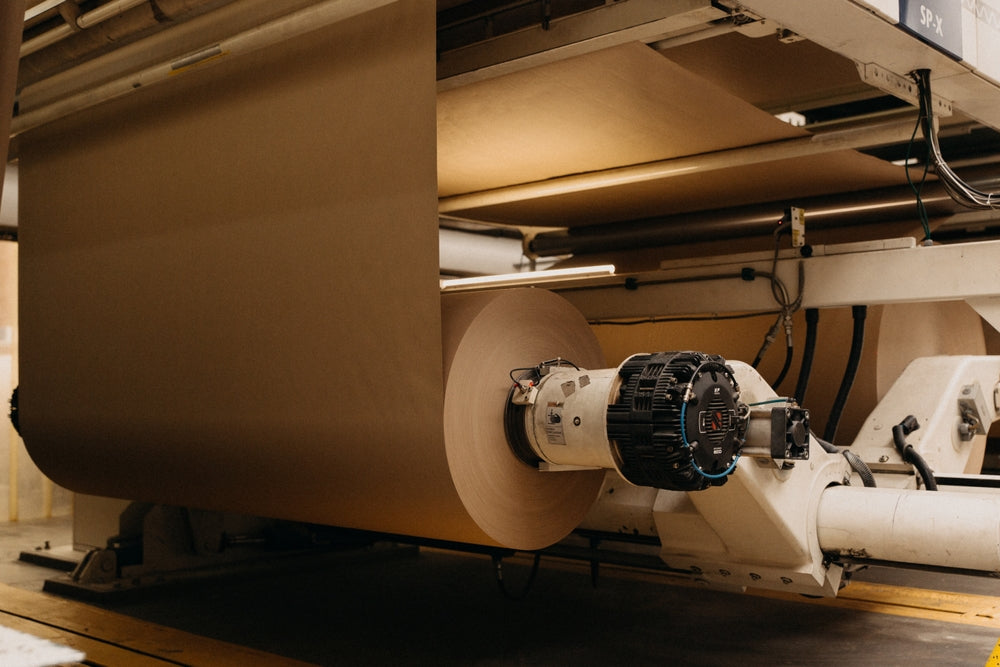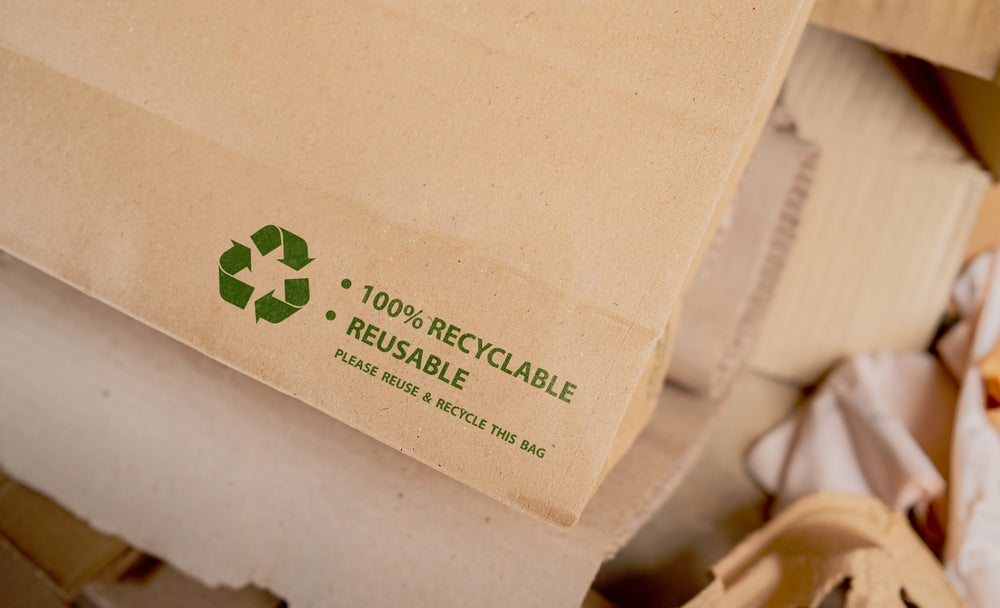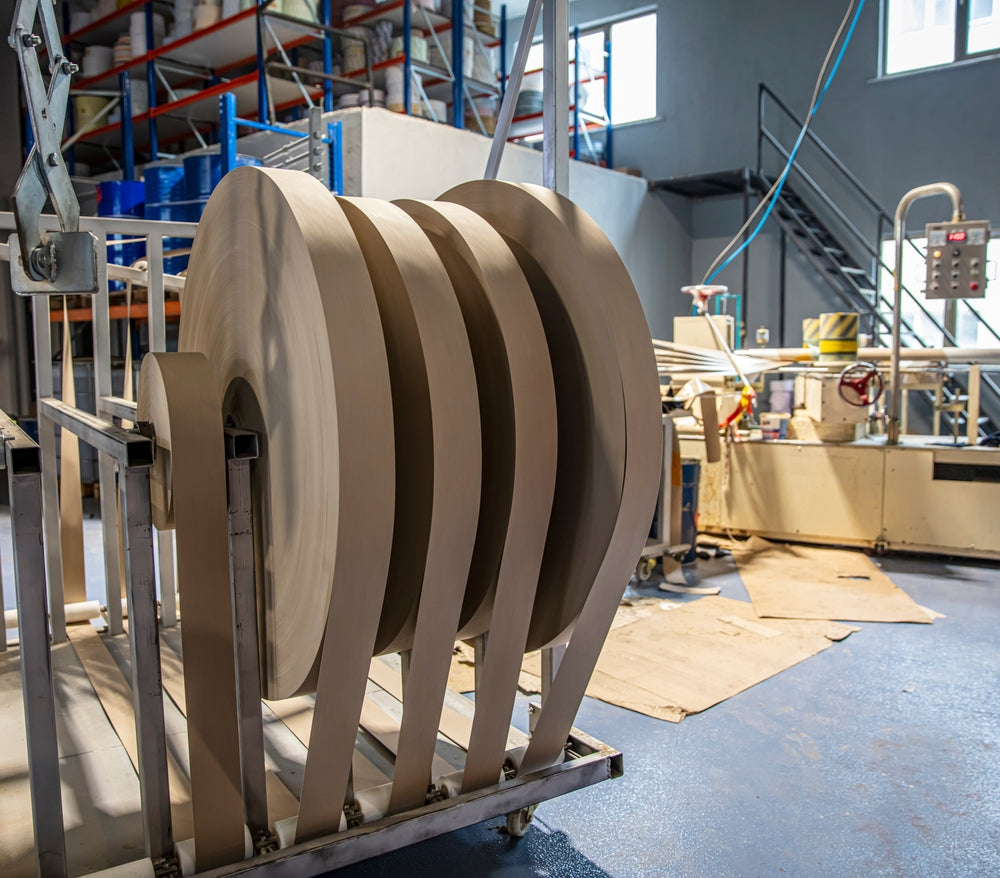Please note: this post originally appeared on the Erdie.com
Kraft paper, a staple in households worldwide, serves various purposes, from packaging to artistic endeavors. This everyday essential, commonly found in the form of rolls, also plays a pivotal role in crafting paper bags. While its applications are widespread, many users might not be familiar with its manufacturing process or its recyclability. In this article, we delve into the world of Kraft paper to explore its production and diverse uses.
What is Kraft Paper?

Kraft paper, characterized by its brown hue, is typically crafted from wood chips. With a history spanning over a century, it has been a reliable material for packaging and printing. Despite lacking inherent waterproof properties, Kraft paper can effectively resist moisture when treated with substances like wax or oil. This treatment enhances its suitability for applications such as food packaging.
Distinguishing Kraft Paper from Recycled Paper
Although Kraft paper can be produced from recycled materials, it differs from traditional recycled paper in its manufacturing process. Unlike recycled paper, which undergoes a bleaching process, Kraft paper retains its brown color and sturdiness. The bleaching of recycled paper weakens its fibers, resulting in a less durable product compared to Kraft paper.
Uses of Kraft Paper
The versatility of Kraft paper shines through its application in everyday scenarios. Its robust and tear-resistant nature makes it a preferred choice when durability is essential. Often overlooked, this unassuming material finds its way into various aspects of our lives, including food wrapping, arts and crafts, packaging fragile items, gift wrapping, clothing tags, and surface protection.
Manufacturing Process

The creation of Kraft paper involves a chemical process that transforms wood into wood pulp. The term “kraft” specifically refers to the method wherein softwood chips undergo cooking with intense pressure and heat in a mixture of strong alkaline chemicals. The cellulose component, essential for making Kraft paper, is separated from lignin through a process akin to cooking instant noodles. The resulting pulp is washed, screened, rolled, and dried, ready to be shaped into the familiar Kraft paper rolls seen in manufacturing plants.
Recyclability of Brown Kraft Paper

In alignment with the growing environmental consciousness, brown Kraft paper stands out as a 100% recyclable option. The recycling process involves turning used Kraft paper back into pulp, which is then used to create fresh rolls. Most modern Kraft paper production utilizes a combination of recycled and raw materials, making it an eco-friendly choice.
The Evolution of Kraft Paper: Tubes and Beyond
Kraft paper’s evolution from wood chips to rolls has paved the way for an innovative application – the crafting of paper tubes. These cylindrical structures, often used for packaging, mailing, and even as cores for various industries, demonstrate the adaptability of Kraft paper in diverse manufacturing processes.
Production of Kraft Paper Tubes

Crafting Kraft paper tubes involves a specialized manufacturing process that harnesses the inherent strength of Kraft paper. The process typically starts with selecting a specific grade of Kraft paper based on the desired thickness and strength of the tubes. The chosen paper is then wound tightly into cylindrical shapes, with adhesive applied strategically to ensure structural integrity.
The tubes are then subjected to precision cutting to achieve the desired length, and their ends may be sealed to enhance durability. Depending on the intended use, additional treatments such as water-resistant coatings or inner linings may be applied to meet specific requirements.
Applications of Kraft Paper Tubes
- Packaging Solutions: Kraft paper tubes serve as an eco-friendly alternative to traditional packaging materials. Their durability and strength make them suitable for protecting delicate or irregularly shaped items during transit. From cosmetics to posters, Kraft paper tubes offer a secure and sustainable packaging solution.
- Mailing and Shipping: With the rise of e-commerce, Kraft paper tubes find their place in the shipping industry. They provide a protective casing for documents, blueprints, or even small items, ensuring they reach their destination in pristine condition. Additionally, their lightweight nature contributes to cost-effective and sustainable shipping practices.
- Storage and Organization: Beyond transportation, Kraft paper tubes are valuable for storage and organization. From storing rolled documents to organizing art supplies, these tubes offer a practical and eco-conscious solution.
- Industrial Cores: In manufacturing, Kraft paper tubes serve as cores for various materials such as textiles, films, and tapes. Their sturdiness and customizable dimensions make them indispensable in supporting and protecting materials during production processes.
Advantages of Kraft Paper Tubes
- Eco-Friendly: The primary advantage of using Kraft paper tubes lies in their eco-friendly nature. As a biodegradable and recyclable material, Kraft paper aligns with sustainable practices, contributing to reduced environmental impact.
- Customization: Manufacturers can tailor Kraft paper tubes to meet specific requirements. Whether it’s adjusting the dimensions, adding branding elements, or incorporating special coatings, the versatility of Kraft paper allows for a wide range of customization options.
- Strength and Durability: Kraft paper’s inherent strength, when translated into tube form, results in robust and durable packaging solutions. This strength is especially crucial in protecting sensitive items during transit.
Innovation and Sustainability: The Future of Kraft Paper Tubes
As industries continue to prioritize sustainable practices, Kraft paper tubes stand at the forefront of innovation. The potential for further advancements, such as incorporating recycled materials or exploring alternative coatings, positions Kraft paper tubes as a leading choice for environmentally conscious packaging and industrial applications.
For businesses seeking tailored Kraft paper tube solutions or exploring the possibilities of eco-friendly packaging, Erdie remains committed to providing expert guidance and sustainable alternatives.
